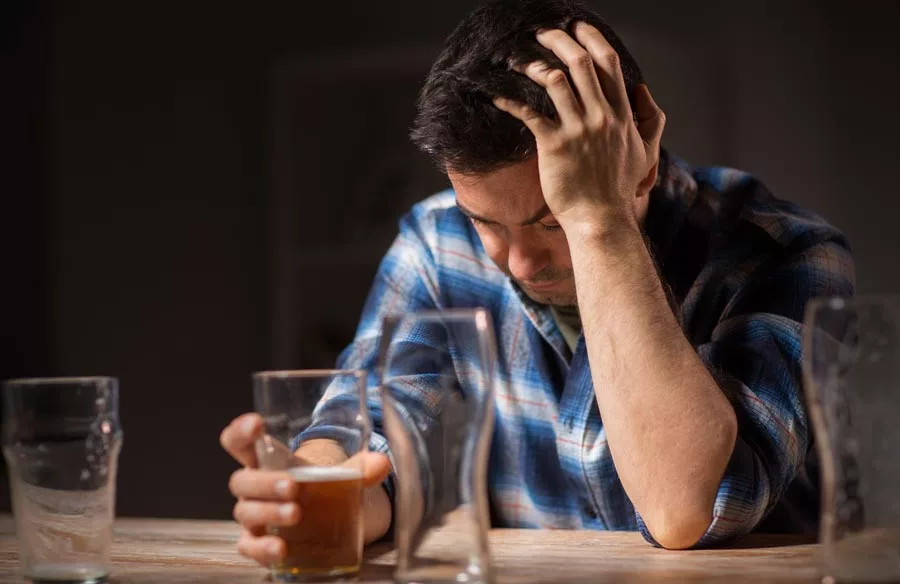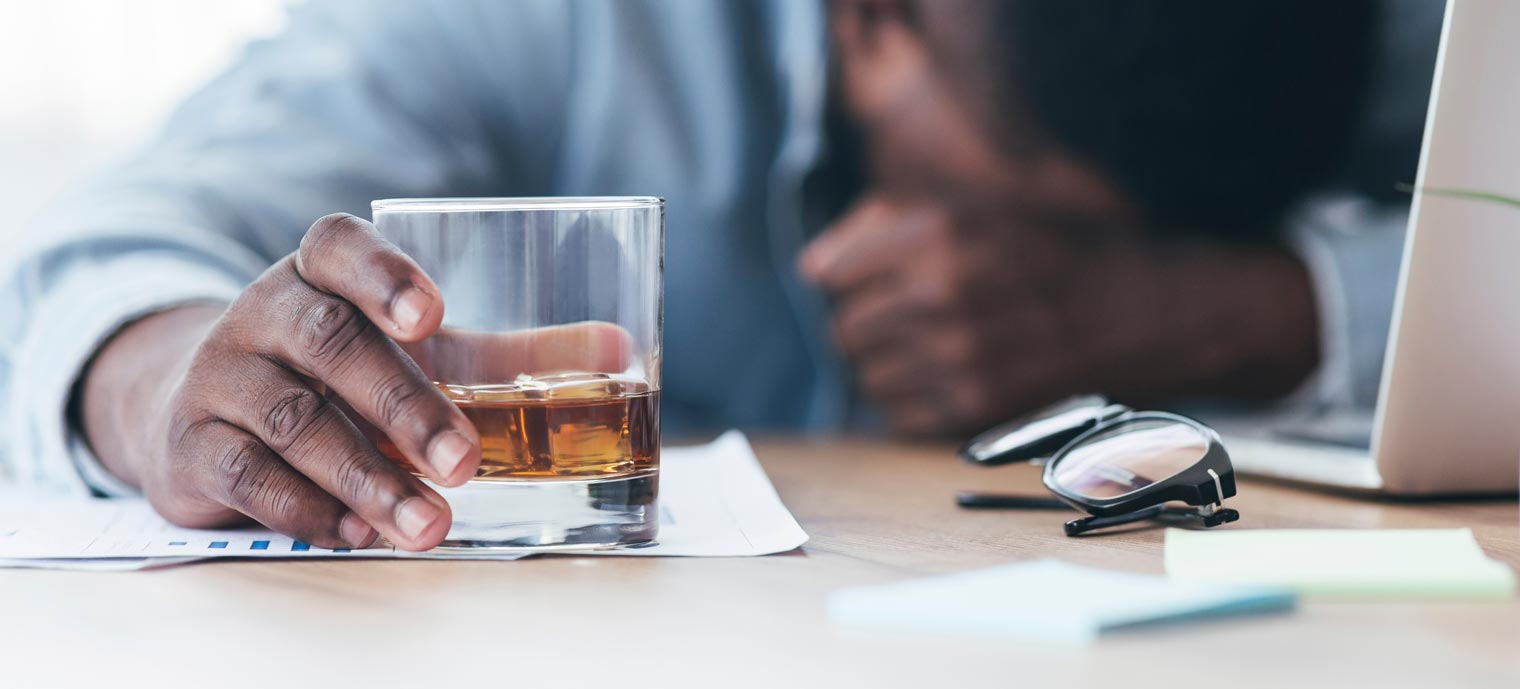
The Alcohol and Depression Connection
I used to drink to feel better. I needed to get that immediate relief and escape from my everyday life. It led me to a crippling alcohol addiction that lasted years and drove away a lot of cherished people in my life. I am still working to make up for the wrongs that I committed during my addiction.
When things couldn’t get any worse, I gave recovery a shot. Emerald Isle gave me the boost that I needed to start getting my life back on track. One of the big issues for me was dealing with my depression in a healthy manner, which I had never done. The alcohol and depression connection is potent and leads you into a never-ending spiral of hopelessness.
Does Depression Lead to Drinking?
Table of Contents
Alcohol affects everyone differently, but there is definitely something to be said about the link between alcohol and depression. We all try to self-medicate when we are in a funk. We all have different vices and things that make us feel better. I never got heavy into drugs. Alcohol was always my weakness. Unfortunately, because drinking is so acceptable in our culture, it made it much harder for me to get clean. It is still hard for me to go into establishments where alcohol is served.
Immediate Placement in Drug Rehab
Does Alcohol Make Depression Worse?
If you are dealing with mental health issues and addiction at the same time, it can seem impossible to get out of. One thing feeds off of the other. Does alcohol make depression worse? It definitely did for me. The effects of drinking on clinical depression are very obvious, though they may not be to the person suffering. I have always struggled with depression and was diagnosed at a young age with clinical depression. It’s always been a regular part of my life. There have been times when I have kept my depression at bay, but it always creeps into my life eventually.
Clinical Depression as an Underlying Cause of Alcoholism

Clinical depression is one of the many risk factors for alcohol use disorders. Drinking at an early age is another big one. I had my first drink when I was twelve years old. When you’re a kid, if you don’t have the right guidance, drinking seems really cool. Even if you do have good role models in your life, it can be hard to avoid temptation. We are all trying to be cool and fit in as we grow up. It’s hard to tell a teenager they don’t have to be like everyone else. That is as difficult a message to get through as any.
What are the Consequences of Self Medication with Alcohol?
Regular drinking over an extended period of time can easily lead to alcohol use disorder and addiction. It may seem harmless at first, but eventually, the drinking can get out of control. Can drinking too much make you depressed? There’s always a risk of that.
Again, you might think things are all fun and games at first, but you’d be surprised how quickly your drinking can lead to very harsh repercussions. I’ve had multiple DUI arrests and have been jailed for disorderly conduct on more than several occasions. Drinking can easily take away the rational part of your brain. It certainly did mine.
What Are the Warning Signs of Alcohol and Depression?
Drinking to feel normal or feel some kind of escape is a big red flag. If you absolutely need to have alcohol there is something wrong. For me, it used to be every afternoon. I would need to crack open a beer by two or three p.m. That would lead me to drink into the evening. That eventually led me to crack open my first beer at noon, and by the time I went to recovery at Emerald Isle, I was beginning to drink as soon as I woke up in the morning.
Both alcohol and depression show themselves physically as well. You may begin to gain or lose weight and put yourself at risk of conditions like diabetes and heart disease. Your skin suffers greatly as well. Alcohol dries out the skin and can give you a pale, sickly look. Other common symptoms of alcohol abuse are insomnia, increased heart rate, anxiety, and seizures. Then there is the depression that goes along with it.
Immediate Placement in Drug Rehab
Dual Diagnosis Treatment for Depression and Alcohol
It can be hard to find effective treatments for alcohol and depression. One of the newer approaches is dual diagnosis treatment for alcohol use and depressive disorders. Emerald Isle offers a great dual-diagnosis program that is designed to help you tackle both your alcohol and depression simultaneously.
It may seem scary to try and deal with so much at one time, but it’s been proven to be very effective. Treatment for co-occurring disorders is a lot more widespread than the used to be. Alcohol and depression both feed off each other, so it’s important to tackle them both as the same issue.
Effective Treatments for Alcohol and Depression
Alcohol is one of the only drugs that can kill you if you don’t detox correctly. The importance of medical detox for alcohol dependence cannot be understated. If you are a chronic alcoholic, it can be very dangerous to do an at-home detox. Most medical professionals highly advise against doing it on your own. The people at Emerald Isle treated me great and there’s no way I could have gotten through the detox without their guidance. They truly were angels.
When it comes to dealing with your depression, it depends on the root of the problem. There are many different types of depression. When I was diagnosed with major depression when I was younger, I thought my life was over. It’s very tricky to keep a positive attitude and properly deal with a diagnosis like that.
Seasonal affective disorder is another type of depression that can lead to substance abuse. A lot of people relapse in the winter months when there is a lack of activity or light. A lack of sunlight and vitamin D can put you in a difficult headspace.
Psychotic Depression and Alcohol Use
There is also the prospect of psychotic depression. This is when depression becomes so severe it requires medical intervention and hospitalization. Psychotic depression can include delusions, hallucinations, and severe suicidal thoughts. Other severe forms of depression include persistent depressive disorder and anhedonia.
Anhedonia refers to the inability to feel pleasure of any kind as a result of depression and other mental health disorders. There are a lot of medications for alcohol and depression, but you will need much more than just that. A combination of medication, therapy, and self-work is required.
Risk Factors for Alcohol Use Disorders

I mentioned self-work in the last section, which is something that a lot of people overlook in many aspects of their life. You should constantly be working on yourself and trying to be a better, more grounded person. This can be said for people who don’t suffer from addiction or mental illness as well.
We could all do a better job of working on ourselves. A lot of people think that when they reach adulthood, they are done growing. You can continue to grow no matter what your age. Just because you are physically grown doesn’t mean you are spiritually or emotionally mature.
Hereditary vs Environmental Concerns
When it comes to conditions like alcoholism and depression, there is a lot of self-work and reflection that needs to occur in order for you to get better. Hereditary vs. genetic causes of alcoholism and depression can shape your recovery. What works for one person may not work for another.
Some people are more likely to become alcoholics due to family history or physiological reasons. There are people who are genetically destined to deal with substance abuse. Recognizing these patterns can be difficult until they come right to the surface.
Alcohol Use Assessments
Diagnosing your specific type of addiction is important. Cage and mast alcohol use assessments are one of the tools used by addiction specialists. The cage and mast tests are screening tools and questionnaires that help gauge whether someone has a substance abuse problem.
This can help gauge the level and severity of your addiction. People can be at all different stages of addiction when they decide to seek help. Interestingly enough, a lot of folks don’t seek help until they have hit rock bottom.
Learn More About our Drug Rehab Program
Maintaining Sobriety through Proper Aftercare
How do you keep your alcohol addiction under control once you’ve gone through recovery? This answer will be different for everyone. The one thing that can be said for most people is that therapy and group meetings are a great source of comfort. I attend as many meetings as I can and it helps me hold myself and others accountable.
Ultimately, you’re only in charge of yourself, but it can be a great help to others to know that they are part of a group of people trying to achieve the same goal. When I see other people succeed, it makes me want to do the same.
Finding Recovery with Emerald Isle
There are a lot of activities for alcohol and depression relief that exist out there. I try to work out and maintain my physical fitness. That helps me feel more in control of my body. I’m a big sports guy, so I jump at any opportunity to play some pickup basketball or volleyball.
Being in good physical shape can help you stay in good mental shape, which you will need to be if you are going to succeed in sobriety. We all have different paths and different experiences, but the one thing we all have in common in recovery is the desire to live a better life.
If you’ve had enough the vicious cycle of alcohol and depression, reach out to the Admissions team at Emerald Isle today, they are dedicated to helping each client that walks through their doors. I’m glad I took the leap to get better, and I think you’ll be glad you called them as well.








